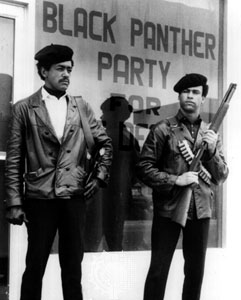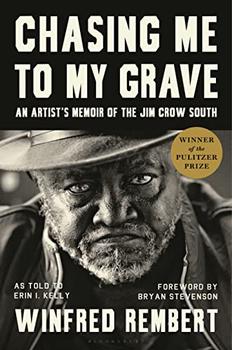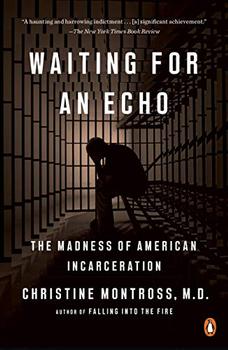Summary | Excerpt | Reviews | Beyond the book | Read-Alikes | Genres & Themes | Author Bio

Winner of the 2019 BookBrowse Debut Author Award
A chronicle of rare power and humanity that proves the better spirits of our nature can thrive against any odds.
Solitary is the unforgettable life story of a man who served more than four decades in solitary confinement - in a 6-foot by 9-foot cell, 23 hours a day, in notorious Angola prison in Louisiana - all for a crime he did not commit. That Albert Woodfox survived was, in itself, a feat of extraordinary endurance against the violence and deprivation he faced daily. That he was able to emerge whole from his odyssey within America's prison and judicial systems is a triumph of the human spirit, and makes his book a clarion call to reform the inhumanity of solitary confinement in the U.S. and around the world.
Arrested often as a teenager in New Orleans, inspired behind bars in his early twenties to join the Black Panther Party because of its social commitment and code of living, Albert was serving a 50-year sentence in Angola for armed robbery when on April 17, 1972, a white guard was killed. Albert and another member of the Panthers were accused of the crime and immediately put in solitary confinement by the warden. Without a shred of actual evidence against them, their trial was a sham of justice that gave them life sentences in solitary. Decades passed before Albert gained a lawyer of consequence; even so, sixteen more years and multiple appeals were needed before he was finally released in February 2016.
Remarkably self-aware that anger or bitterness would have destroyed him in solitary confinement, sustained by the shared solidarity of two fellow Panthers, Albert turned his anger into activism and resistance. The Angola 3, as they became known, resolved never to be broken by the grinding inhumanity and corruption that effectively held them for decades as political prisoners.
Albert's unwillingness to break—his strength and determination—is a lesson bestowed to those who are just entering the world of social struggle, as well as a reminder to those who have been fighting these battles for decades. Whether it's prison reform, racism and classism, or other ideologies and causes, the message is the same: Do what can be done, wherever it can be done, to better the world...continued
Full Review
 (1099 words)
(1099 words)
(Reviewed by Jamie Chornoby).
 In October of 1966, Huey P. Newton and Bobby Seale of Oakland California founded the Black Panther Party for Self-Defense, which later became the Black Panther Party. Although the Party disbanded in 1982 only 16 years after its creation, it remains one of the largest and most controversial black revolutionary organizations in history. Known for encouraging militant self-defense of minority communities against the United States government, the Black Panther Party worked to establish economic, social and political equality through international socialist ideals, mass organizing and community-based programs.
In October of 1966, Huey P. Newton and Bobby Seale of Oakland California founded the Black Panther Party for Self-Defense, which later became the Black Panther Party. Although the Party disbanded in 1982 only 16 years after its creation, it remains one of the largest and most controversial black revolutionary organizations in history. Known for encouraging militant self-defense of minority communities against the United States government, the Black Panther Party worked to establish economic, social and political equality through international socialist ideals, mass organizing and community-based programs.
The Black Panther Party had a ten-point platform and program based on members' desires and beliefs. Newton said that they strove "to ...

If you liked Solitary, try these:

by Winfred Rembert
Published 2023
Winfred Rembert grew up in a family of Georgia field laborers and joined the Civil Rights Movement as a teenager. He was arrested after fleeing a demonstration, survived a near-lynching at the hands of law enforcement, and spent seven years on chain gangs.

by Christine Montross
Published 2021
Galvanized by her work in our nation's jails, psychiatrist Christine Montross illuminates the human cost of mass incarceration and mental illness